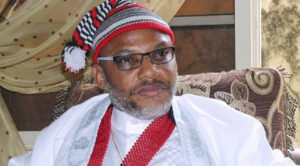
FG inaugurates committee to review impact of US tariffs
The federal government through the Economic Management Team (EMT), chaired by the Minister of Finance and Coordinating Minister of the Economy, Mr. Wale Edun, has inaugurated a sub-committee to conduct a comprehensive review of the economic effects of ongoing international tariff regimes and shifts in global commodity prices.
This initiative comes on the heels of recent trade policy decisions by the United States Government, which imposed a 14 percent tariff on certain Nigerian exports, alongside various tariffs on goods from other countries.
The development has raised concerns within Nigeria’s policy circles about the implications for local exporters and the broader economy.
The newly formed sub-committee comprises representatives from the Federal Ministry of Finance, the Ministry of Budget and Economic Planning (including the Budget Office of the Federation), and the Central Bank of Nigeria (CBN). It has been tasked with a dual mandate.
Firstly, the committee will assess the impact of the U.S. tariffs on Nigerian exports. It is expected to investigate the potential for reduced demand for Nigerian goods in the U.S. market, increased costs for exporters, and broader consequences for value chains connected to these goods. In addition, the team will examine how these tariffs might affect Nigeria’s position in global trade.
Secondly, the sub-committee is to evaluate the implications of fluctuating global commodity prices, with a particular focus on crude oil. As Nigeria’s leading export and a major contributor to public revenue, movements in oil prices hold significant implications for the country’s fiscal health.
The committee will study both the direct effect on revenue streams from crude exports and the knock-on effects across other sectors of the economy—such as inflation, fuel prices, and manufacturing activities dependent on imported inputs.
The overarching objective for setting up the sub-committee is to provide the EMT with detailed, data-backed analysis that will support timely and informed policymaking. The review is expected to serve as the foundation for targeted strategies that shield the economy from external shocks and maximize any emerging opportunities.
According to a statement issued by the Ministry of Finance, the sub-committee held its inaugural meeting earlier this week and is working under a tight timeline to present its findings to the full EMT.
During the EMT session convened by Mr. Edun earlier in the week, participants from key ministries and economic agencies convened to analyze the economic implications of the recent policy shifts, especially those relating to international trade. The meeting focused specifically on the new tariff measures by the United States and the accompanying downward trend in global crude oil prices.
While Nigeria’s crude oil has not been directly targeted by the U.S. trade action, the EMT noted that the overall impact on the global trade environment, coupled with the fall in oil prices, requires urgent and sustained analysis.
The work of the sub-committee is expected to influence the next phase of Nigeria’s economic strategy. With ongoing global uncertainties—from geopolitical tensions to protectionist trade policies—the EMT appears to be reinforcing its commitment to responsive and evidence-based economic planning.
The review exercise also signals an important step in anticipating and adapting to shifts in the global economy. By identifying risks and pinpointing areas for policy intervention, the EMT aims to keep Nigeria on a steady economic course in the face of international turbulence.
Breaking: Atiku, el-Rufai lead opposition leaders to visit Buhari
FG urges Nigerians to disregard fake ambassadorial list
Rivers emergency rule pushes NBA annual conference to Enugu
Share your story or advertise with us: Whatsapp: +2348033202396 Email: sentinelnewsng@gmail.com








